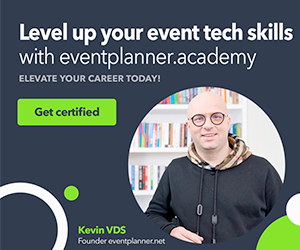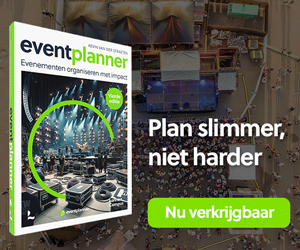Transcript
Are you organizing a conference? Chances are high you will have some scientists on stage. Some of these nerds aren’t what I would call the best speakers out there. So how does one present complex technical ideas? I talk nerdy about it with Melissa Marshall.
Hi Melissa, welcome to our studio.
Hi Kevin, thanks for having me.
We’re going to talk about technical people, scientists, talking about their sometimes nerdy ideas, but, in my opinion some of those people aren’t exactly what I would call the best speakers. Why is it important that they can bring their story across and how should they do that?
Sure. I think that you know, the way that I would capture it, is that scientists, engineers, technical professionals, are busy doing their important work. You know they’re not perhaps professional speakers by nature but here’s the thing. The reason that I love the work that I do and coaching technical presenters is that I think that with a couple of tweaks and tools, anybody can become an effective presenter of their science. I mean two things that I think anyone could do right away that would dramatically improve the way that they present. The first is that I think it’s quite easy to be what I call a speaker, centered speaker. And for a lot of us that’s actually our default setting. It’s just the kind of way that we’re... that’s natural for us. And what I mean by that is that we make choices becauseit’s what works for us as speakers. So, we choose to talk about things because it’s what we’re most comfortable with. We put a script on our slides, in all those words, because it helps us to remember what to say. Those are example of speaker centered behaviors. And I believe that if every presenter could make the shift to becoming what I call an audience centered speaker, that that changes everything. And really what that means is that if you’re an audience centered speaker, you ask yourself at every stage in the presentation, whether it’s the material that you talk about, whether it’s what you put on the screen, the way that you deliver. You ask yourself, what works for my audience? That’s what it means to be an audience centered speaker. And the reason that… you know that’s a subtle or simple idea. The reason that it’s so effective is that ultimately, presentations are never for a speaker, right. You don’t, as a speaker, give a presentation and be like, man I was awesome. I mean you can, right, but nobody cares, you know that’s not why the talk existed. A presentation is by nature always for an audience. And so if you prioritize the needs of your audience, that’s instantly going to make you much more effective. The other tip that I think is critical for a presenter of technical information is to think really carefully about what goes on the slide. I think that we have a lot of presentations of science there being killed by the bullet points. And so my encouragement to you if you’re a technical presenter or if you’re helping somebody who is presenting technical information, is to make sure that your slides are visual. Have much more visual information and get rid of the bullet points. I think the gold standard are questions about each slide, is ask yourself, does my slide do something for me that my words cannot. When you have a slide that’s words only you’re simply doubling up on what you’re already doing as a presenter, and it’s not effective for the audience. But if your slides add something, like a graph, like a chart, like a video, like an image... You know there’s so many things that work well, but ask yourself, does my slide do something for me that my words cannot. And that’s going to lead you to a much more visual slide, which is much better for your audience.
What about specific jargon those scientists use? Because that’s also a big problem.
Yeah, sure… I mean, all of us have our jargon, right. I mean we’re all using certain types of language in the field that we’re comfortable with. And so I think it’s important to make sure that you’re thinking about what are the understandings that my audience happens to have. Sure, if your audience is a fully specialist audience just like you then there’s words that will be comfortable for you. But in most cases, you’re probably going to be talking to a multi-disciplinary audience. And so those could be people who don’t have that same background. Could be people in the public and politics. And so I think that some of the things that you can do that immediately help to make information more understandable, is to think about using things like analogies, metaphors, examples, stories. Things that can make abstracts on technical ideas much more concrete. Those are some winning things that you can do right away to help others to understand your language.
Okay, Melissa you’re a coach, a public speaker, on this subject, so people can book you. What is your personal infinity with this topic?
The reason that I choose to do this type of work is that I believe so strongly in the importance of, science and research and solving the problems of our world. I mean, scientists, engineers, technical professionals, those are the ones that are working hard right now, to solve issues that affect health, happiness and safety. And so for me I want to make sure that our next great breakthrough isn’t lost. Simply because someone who is in a position to support that idea didn’t understand why it was so critical. So for me I think that improving our world depends often on the advancements of science. And I want to make sure that those ideas are understood and appreciated by those in a position to move them forward. And so for me, what that looks like is standing alongside scientists and technical professionals, and coaching them to make sure that the story of their science comes through loud and clear.
Okay Melissa, thank you very much for sharing these tips with our audience.
Right, thanks for having me Kevin.
And you at home, thank you for watching our show. I hope to see you next week.







